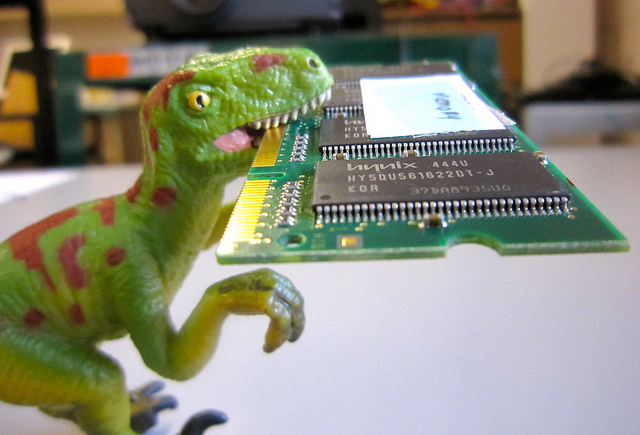As the Marc Andreessen New York Magazine article was spreading through my network, I actually had little desire to read it. That is not to say he does not have anything interesting to say, just that I pretty much get my fill from his tweets and retweets of his tweets throughout the day. What more could one possibly learn about his thoughts and politics?
I did eventually read the article however, and one thing struck me early on at the start of the interview. Commenting on the atmosphere of Silicon Valley in the mid-90’s, he stated:
Technology in the U.S. is dead; economic growth in the U.S. is dead…I came out here in ’94, and Silicon Valley was in hibernation. In high school, I actually thought I was going to have to learn Japanese to work in technology. My big feeling was I just missed it, I missed the whole thing. It had happened in the ’80s, and I got here too late.
It is hard to imagine for most a world where tech was “dead” as an industry in the US, much less in the epicenter of tech innovation. But I vividly remember those years and the proceeding years when tech was not just uncool, but was something people in Japan did. All your electronics were Japanese, all the factories were owned by Japanese, all of our cars were turning Japanese, anything tech was Japanese. Tech in the US was a dead end career.
Even in the early 2000’s, tech was not so cool. People were mad at the tech sector and blamed the sector for the recession. Despite corporate implosions such as Enron and Worldcom, the Gulf War, and a multitude of other global economic issues, it was sock puppet mascots and delivery startups that became the fall guy for our nation’s misery. In the rampant desire by corporate bean counters to cut costs, they dropped IT workers like used dish towels and outsourced entire departments in a flash to places like India and Eastern Europe. Suddenly, being a tech worker was not just uncool, it was about as secure of a job as a retail cashier.
What we never realized through those periods is that the stagnation and uncertainty were only temporary. But when you are living through those periods, it can seem like forever and the prospects for employment pretty bleak. Like for kids graduating college in 1990 or 2001 or 2009. None of those were banner years for the economy or jobs. But on the flip side, graduating in 1994 or 2004 or 2011 and going into tech held not only promise, but huge potential. What made those years so different than the few years preceding?
When you look back, you realize that each of these years brought a key innovation or trend that opened up an entire new market that did not exist prior. In 1994 you had the Web and the launch of the first browser. In 2004 brought low-cost public cloud infrastructures, including the first public facing Amazon Web Service called Simple Queue Service. Though 2011 was still weak for the US economy, it marked the year mobile shipments overtook PC’s, Android became a serious player in mobile, and tablet sales were bonkers. In their own way, each was a Wild, Wild West of tech progress. When the economy was muddling along, tech kept trucking along, coming up with yet another trick.
And that is the point, you can never miss out when it comes to tech. I was fortunate to graduate when the Web was taking off. But if I put my optimist hat on, then there is no way I could have missed out because another tech wave would come and a chance to catch the wave. When mobile becomes stale, maybe wearables or 3D printing or IoT will be the next wave. Maybe it is the blockchain or VR related applications. After those things run their respective courses, maybe it could be human-machine interfaces or bionics or something else we could not even imagine.
So I do not worry about missing out. I do not get concerned when Ph.D’s are busy making party planning apps. I do not mind the banal tech press hoopla over this app or that service. They are living in a world of now and a world of the obvious. I worry when we stop dreaming and when we are too consumed by what is not possible. I worry when we think tech has stopped innovating. I worry when people say we missed the boat. Folks, there is no boat to miss because innovation and the spirit of human creativity makes sure there are always boats available for the next big thing.
That is, in a nutshell, the glory of our tech industry, we can never miss out.
This article was originally published on Strong Opinions, a blog by Birch Ventures for the NYC tech startup community.
Image credit: CC by Kate Ter Haar




